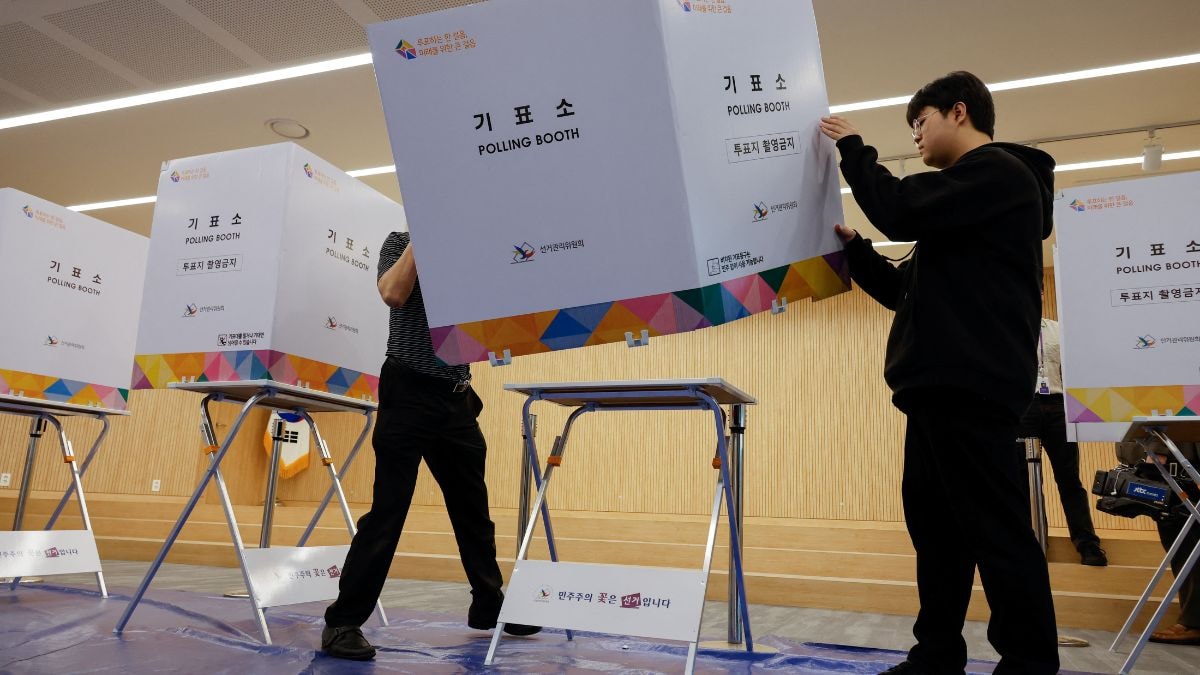From the Dior bag scandal to the doctors strike that incapacitated its healthcare system, voters in South Korea will exercise their right to franchise on Wednesday, keeping in mind the various key issues that linger in the nation
What do striking doctors, a Dior handbag and green onions all have in common? They are all trending topics that have got voters talking before South Korea’s legislative election on Wednesday.
AFP takes a look at the surprising array of issues that could influence South Korean voters when they choose the next members of their 300-seat parliament.
Doctors strike
South Korean healthcare provision has been severely disrupted for weeks with thousands of junior doctors on strike since February 20, forcing hospitals to cancel operations and crucial treatments.
The medics oppose President Yoon Suk Yeol’s medical reforms, which would sharply increase medical school admissions to create more doctors to ease shortages and help the rapidly ageing country.
Surveys show the public supports the reform plan despite the inconvenience it has caused, as Seoul refuses to negotiate and threatens medics with legal action.
“With overwhelming public support for the reform, the ongoing gridlock with the medics will not harm Yoon’s party, (but) could even help it in the polls,” Shin Yul, professor of political science at Myongji University, told AFP.
Errant ambassador
With the polls fast approaching, Yoon’s new ambassador to Australia, former defence minister Lee Jong-sup, resigned on March 29 – less than a month after he was appointed.
Lee was under investigation by corruption officials in connection with a probe into the death of a young marine during flood rescue efforts last year and his appointment prompted widespread criticism, including from ruling party lawmakers.
Even though he resigned, the fiasco is still likely to have an impact on voters, who are sensitive to the idea that certain senior officials consider themselves above the law, analysts say.
People are “questioning whether the Yoon administration is implementing the laws in a fair manner”, said former ruling People Power Party (PPP) lawmaker Yoo Seung-min in an interview Sunday with South Korean broadcaster MBN.
Dior bag
Hidden camera footage released last year that appeared to show South Korea’s First Lady Kim Keon Hee accepting a $2,200 luxury designer handbag has also caused a political headache for Yoon and his PPP.
Dubbed the “Dior bag scandal” by local papers, it further hit Yoon’s already low approval ratings, hampering his party’s efforts to take back control of parliament, which it has not held since 2016.
Such a gift would violate South Korean law banning public officials and their spouses from accepting anything worth more than $750.
Yoon dismissed the video in February as a “political scheme” and said his wife had accepted the bag only because it was difficult for her to refuse it.
She has not addressed the issue publicly and has not made any public appearances this year.
North Korea
Despite a flurry of ever-more-advanced missile launches by the nuclear-armed North, Seoul’s policy towards Pyongyang has not been a significant talking point for candidates on the campaign trail.
Why? Because South Koreans are so accustomed to the tensions with the North that it’s become a non-issue, said political consultant Bae Kang-hun.
In reality, “widespread public feelings toward North Korea is a pity, not fear”, with the South Korean economy about 40 times larger than the North’s, he said.
But Leif-Eric Easley, a professor at Ewha University in Seoul, warned Pyongyang was “likely to conduct another launch soon… to mark North Korea’s domestic political holidays”.
April 15 is a key anniversary in the North, typically marked with military parades or other major political events.
Green onions
The economy is on many voters’ minds, with consumer price inflation hovering above the three percent range, and Yoon’s purported mishandling of the economy has been cited by Gallup polls as key to negative reviews of his tenure.
Yoon visited a grocery store in March, officially to check consumer prices. Looking at a bunch of green onions, he remarked: “I’ve been to many markets and 875 won ($0.65) for this is a reasonable price.”
However, green onions typically sell for three or four times that amount and local media reported the store discounted the vegetable ahead of Yoon’s visit.
His comment soon became the subject of mockery and online memes, with the vegetable becoming an opposition rallying cry, prompting the National Election Commission to ban voters from bringing them to voting stations.
South Koreans elected Yoon hoping he’d revitalise the economy, ex-MP Yoo said on Sunday, but they’ve been disappointed.
“Yoon’s misquote regarding green onions has added fire” to that sentiment, he said.
